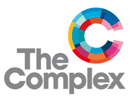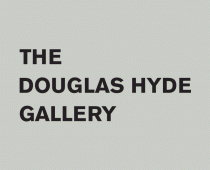
60 Years – Stories of Survival and Safe Haven has been developed by The UN High Commissioner for Refugees – UNHCR Ireland– Office in Ireland in collaboration with photo collective The Lightstalkers.
The exhibition includes portraits of 11 refugees who came to Ireland over the past 60 years since the signing of the UN Convention relating to refugees in 1951. Stories of Survival and Safe Haven brings to life Ireland’s little known but proud tradition in past decades, of providing a safe haven to those in need of international protection from persecution, terror, fear and conflict and of providing a place where the forcibly displaced can live freely in safety and dignity as they re-establish their place in the world. Faced with an uncertain future, the people depicted in this exhibition, and their families, summoned enormous courage to survive and to rebuild their shattered lives. They are survivors, each one with a remarkable story that tells of resilience in the face of great loss.
Info
Opening day: 6pm Friday 8 July
Dates: 8-18 July
Opening hours: 12pm-6pm daily

The Complex, Smithfield, Dublin 7
Location Map
On 28th July 1951 the UN Convention relating to the Status of Refugees – the legal foundation of helping refugees and the basic statute guiding UNHCR’s work – was adopted. 60 Years – Stories of Survival and Safe Haven – was initially launched to mark World Refugee Day on 20th June and to commemorate 60 years since the adoption of the Convention.
The exhibition documents the experiences of Hungarian refugees who came to Ireland in 1956 to escape the Soviet tanks, Chilean refugees forced to flee in the 1970′s after the Pinochet coup, the Vietnamese ‘boat people’ who arrived in Ireland in the late 70′s following the fall of Saigon, and stories from refugees of a contemporary nature from Iraq, Myanmar, Somalia, Sudan and the Democratic Republic of Congo. 60 Years – Stories of Survival and Safe Haven will tell the story of people who came to Ireland looking for refuge and how some of them found a home.
More than 37 million people have been forced to flee war zones. Despite losing everything and the enormity of their suffering, refugees never give up their dream of home and all it entails. Their perseverance inspires all of us who work with them to do everything we can to find solutions so that they can get on with their lives.
60 Years – Stories of Survival and Safe Haven seeks to awaken a shared humanity and humanize an issue that is too often reduced to numbers. It also seeks to encourage visitors to understand Ireland’s shared history with these refugees and to understand the importance of maintaining our tradition of providing a safe haven to those fleeing persecution and conflict.
About UNHCR
The Office of the United Nations High Commissioner for Refugees is mandated to lead and co-ordinate international action to protect refugees and resolve refugee problems worldwide. Its primary purpose is to safeguard the rights and well-being of refugees. UNHCR Ireland works to safeguard the rights and well being of refugees, asylum seekers and stateless people in Ireland through the provision of guidance, training and support to the Irish authorities and through the promotion of best international standards in respect of legislation, policy and procedures.
About the photographers
The Lightstalkers
Established in 2008, Irish Lightstalkers is a social network ofphotographers, journalists and professional travelers who share a passionfor image making in all its forms. Regular meet-up’s provide members with alively forum where they come together to share images, discuss ideas anddebate matters, be they of total insignificance or huge global importance.
The Lightstalkers involved in this project include:
Karl Burke is a freelance photographer and artist based in Dublin. After first getting the photographic bug aged 7, he began a regular photographic practice from the age of 17 while studying law in Trinity College Dublin and had his first published work in 1990. He has exhibited in Ireland, Germany and the USA and is currently researching 19th C. photographic processes.
Phil Behan is a part time freelance photographer based in Dublin, Ireland. Phil’s work is focused mainly around humanitarian issues dealing mostly with refugees and displacement. The majority of his work has been published by UNHCR and United Nations Multi-Media Centre. Phil’s most recently exhibited images from Yemen at the 2010 Fotografia Festival in Rome. Phil is currently working on two long term photo projects, one involving the recent integration of Karen Refugees from Burma to Mayo and also another on which he is in the planning on documenting the lives of Tuareg Cameleers across one of the longest camel journeys in the world in Mali in September 2011. He currently works in the Department of Foreign Affairs in Dublin.
Kim Haughton is an award winning photojournalist and lecturer in Documentary Photography. Based in Dublin, she has documented issues in over twenty countries throughout her career so far, particularly in sub-Saharan Africa. She regularly collaborates with NGO’s on photography projects and her work has appeared in publications worldwide. She is currently represented by Polaris Images.
Lar Boland is a Dublin based photojournalist. His work has appeared in numerous publications including The Observer,The Guardian, Irish Times, Irish Arts Review Rolling Stone Magazine, The Sunday Times, The London Independent Magazine, The Age Melbourne and Philadelphia Inquirer.In recent times he has concentrated on humanitarian documentation in Africa.Projects include: Uganda’s Fit Persons – a juvenile offenders mentoring initiative; Restoring Dignity – an obstetrics project in Uganda; In Search of a Queen – a domestic beekeeping initiative and Africa’s Water Crisis.
Paulo Nunes dos Santos Born in 1977 in Portugal, Paulo is a Dublin based freelance journalist & photographer who has traveled extensively documenting conflict, current affairs, humanitarian crises, social issues and political instability in various regions such as the Middle East, North and Central Africa, Caucasus, Southeast Asia and South America. He recently became an international correspondent for the Portuguese reference newspaper Expresso and a photographer member of the 4SEE photo agency. Paulo’s photos and feature stories have appeared in publications such as The Guardian, New York Post and Irish Times. Paulo has also undertaken assignments on social issues for organizations such as Landmine Action, Handicap International and Dublin Simon Community among others.
Crispin Rodwell is a multi-award winning photographer with 26 years experience covering stories throughout Ireland and in almost 40
countries around the world. From the start of his career in early 1981 Crispin covered twenty-two years of the upheaval and unrest of Northern
Ireland’s ‘Troubles’ and the resulting political agenda which culminated in the 1998 Good Friday Agreement. His work has brought him almost
twenty awards and accolades in national and international photography competitions, including, four times Northern Ireland Press Photographer of the Year, Irish Press Photographer of the Year and Nikon UK Regional Press Photographer of the Year.
Helen Twomey is a freelance documentary photographer currently based in Ireland. Her personal work addresses social issues and includes long term projects highlighting issues surrounding marginalised communities. Helen studied art in Dun Laoghaire, and has a MA in photojournalism from the University of Westminster.
Florencia Saluzzo Argentinean born Florencia got the passion for photography through her grandfather. Luck, Karma, God or Destiny brought her to California where she had one of the best learning and professional experiences: to work for the Ansel Adams Gallery at the same time as doing her own personal project on illegal immigrants working in the fields of Salinas. She has taken part in a number of art exhibitions and festivals and worked on various photographic projects and trips.
Aislinn Delaney worked as a community-based youth worker for more than a decade before returning to college to study documentary photography at the University of Wales, Newport. She has worked on a number of collaborative photography projects with youth and community groups in Dublin as well as freelancing with local press. Her long-term documentary project “Children of Lir” was included in the Gallery of Photography’s 2009 group show Home Economics, which was exhibited both in Dublin and Arles and long-listed for the 2010 Project Assistance Award (British Journal of Photography).
Elena Hermosa, Dublin based, has been merging her background in social work and development education with her passion for social photography and for documenting the human faces of conflicts throughout the world. Since living in Palestine in 2006 she has continued to explore the lives and struggles of victims of land mines in Western Sahara, the battle for land rights of the indigenous people of Tanzania, and mental health issues in the post conflict Balkans. Elena is currently working on a long term project with women and children victims of domestic violence.






















